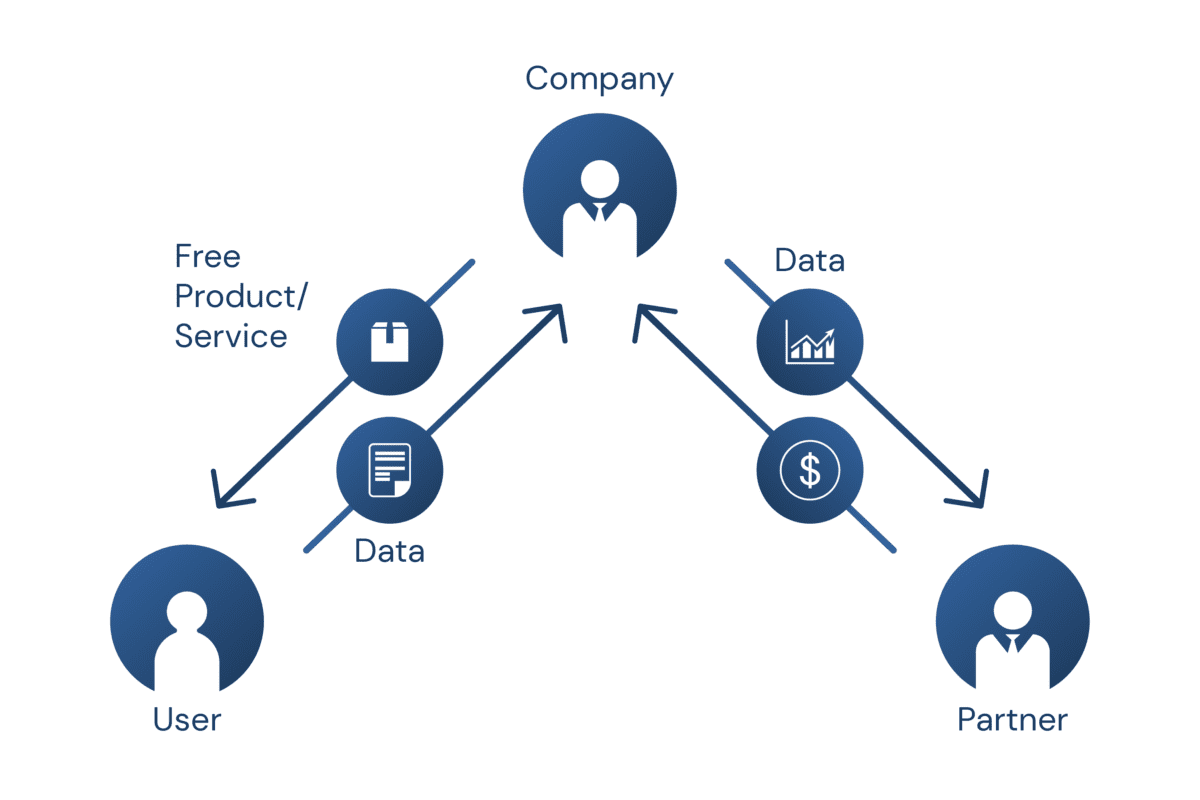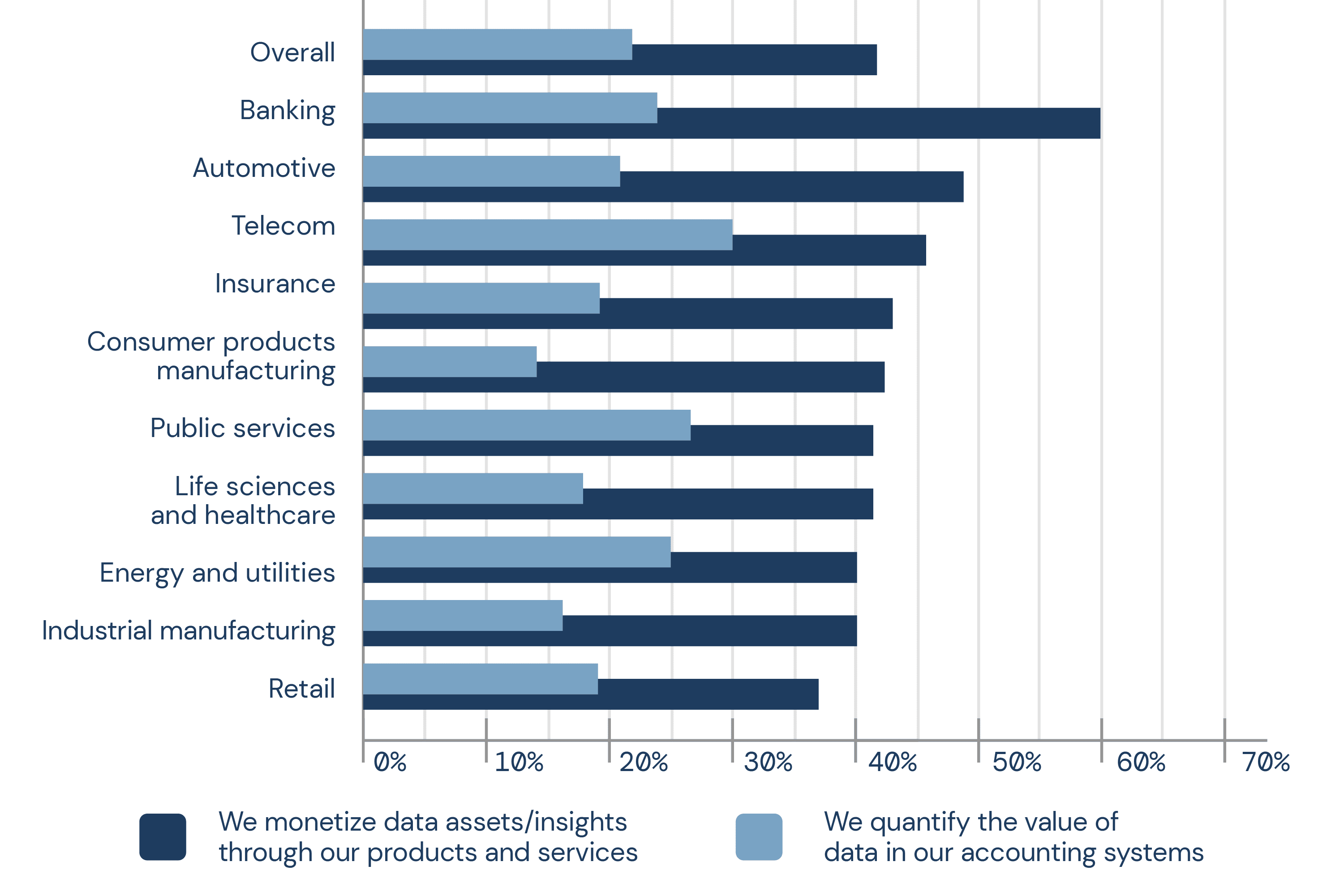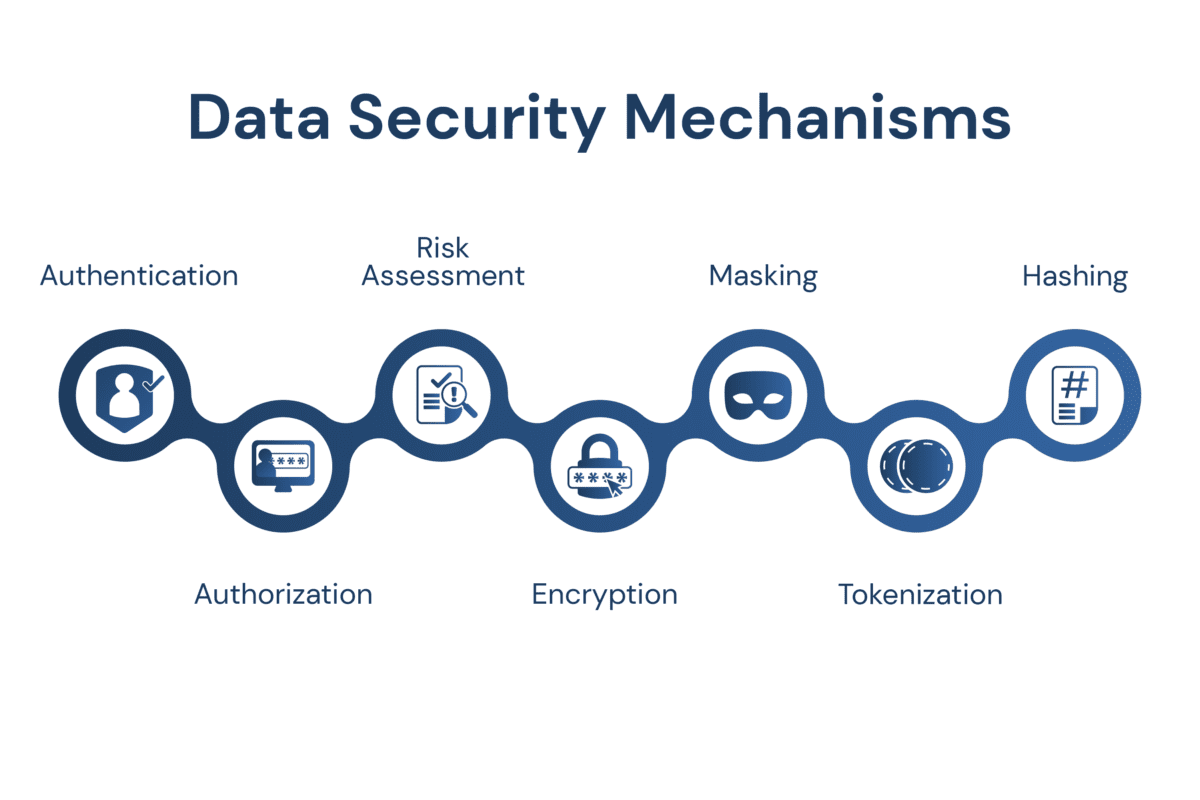What is security? How is privacy related to security?
Balance Between Privacy and Security is often talked about as though they are the same thing. They are related, but not identical. Privacy is about what you choose to show people, while security is about what you hide from them. Many businesses feel that keeping sensitive data safe from hackers entitles them to automatic compliance with data privacy laws. This isn’t the case at all. Although the terms “data security” and “data privacy” are frequently used interchangeably, there are important distinctions to be made:
- Data security safeguards information against outside attackers and malevolent insiders.
- Data privacy refers to how information is gathered, shared, and utilized.

If companies wish to monetize data resources securely and lawfully, they need to do so in a way that initially protects the privacy of both the users who use the new monetization service as well as the data itself. This necessitates enterprises clearly defining and comprehending what it implies to use data safely.
What is privacy worth?
Data privacy is a complicated subject. Data is implicitly valuable, and the only way to get value out of it is to do something with it. But doing something with it implies giving up some control over it. And giving up control is risky. Data privacy is worth a lot because data is worth a lot. And because people don’t necessarily know what data is worth, the value of data can change a lot. Privacy is scarce, but its value is not. That seems strange. But the reasons privacy is valuable are subtle and intangible.
Let us understand how monetization puts data privacy at risk?
Privacy vs. Monetization
How is Data Privacy at Risk with Monetization?
Data Monetization is a buzzword. Probably everyone now understands what it means, but few have thought about what it might really mean. Data is the fuel of the modern world. Data drives the economy, politics, and culture. There are data companies, data consultants, data creatives, and data people. Data is everywhere, and, increasingly, we are mining it for clues to who we are, what we like, and what we think. But the data revolution comes with great risks.
Privacy is an obvious one. Data privacy is the idea that we can keep our secrets. Data privacy is the idea that only we know what we know. But imagine if money were a framework. For example, imagine that instead of data, it was money. Imagine that, instead of money, it was coined. Imagine that one day, someone found hundreds of coins in your pocket. They asked you where you got them. “I found them,” you said. “I didn’t steal them, and no one knows where. They must have dropped out of someone’s pocket.”
Well, that’s data. But imagine also that the person who found them had an idea. “What are the coins doing here?” he asked. “I know someone who collects coins” OR probably “I am the one looking for coins”. Well, that’s data monetization. Data privacy is the idea that you shouldn’t trade your data for money.
Data monetization is the idea that you should. Monetizing data is a useful and important idea, and there definitely should be ways to make it work for you. But technology has a way of tipping the scales, and any decision you make about privacy can easily be overridden. Those circumstances are not inevitable, and it is possible to take control of them.
How Do Companies Monetize Their Data?
Monetization is the idea that information is a commodity, and that you can sell things with it. Data is the fuel of the Internet. For companies, it is as valuable as oil. Data monetization starts with data collection. A company collects data, then sells access to it. There are a couple of ways to sell access to data. For example, you could sell access to data about specific individuals. You could sell access to information about specific companies. You could sell access to information about specific products. Or, you could sell access to data about specific markets. You could sell access to data about competitors, suppliers, customers, or all of the above. The most common way to sell access to data, though, is to sell access to data about specific customers. There are two basic ways companies make money: selling to advertisers and selling to other businesses.
For advertisers, data is valuable because it helps them identify their target market. The more precisely they can target, the more effectively they can target. They’ll pay you to figure out what their target market is and to convince them to buy it. For other companies, data is valuable because its completeness means it is better at predicting what its customers will do. If we know every detail of a customer’s shopping habits, we can predict what the customer will do next; we can predict their likely purchases, and we can better estimate the profit margin on those purchases.
Both advertisers and other businesses want data for the same reason; they want it to help them sell more. Data monetization is a way for companies to share in the profits of selling data.
The most famous companies sell access to data about their customers. Google sells access to information about the world. Facebook sells access to information about people. Amazon sells access to data about products. These companies, like other companies, keep track of everything their customers do. Even the things they don’t buy.

Data Analytics and Monetization
What do the analysts say about monetization tools?
Monetization of Balance Between Privacy and Security tools provide the capability to create, manage, measure, and report on a broad spectrum of analytic initiatives. They allow companies to more effectively aggregate and analyze data, streamline data-based decision making and extract maximum value from data assets.
Monetization tools enable organizations to more readily capitalize on their data assets by generating revenue through new products and services, such as advertising, subscription, licensing and consulting services. They configure, manage and optimize revenue-generating opportunities, such as subscription and advertising models, for a wide range of organizations. Monetization of Balance Between Privacy and Security tools also enable organizations to easily measure and report on their revenues, such as through analytics on the number of subscribers to online streaming services or the number of websites using advertising-supported services. They also provide visibility into sales, such as the number of converted leads, and into costs, such as the cost of leads.
Statista Report on global companies by sector, for the year 2020 monetization and quantifying data is shown below.

What benefit do companies have by ensuring data privacy?
Balance Between Privacy and Security Consumers are far more mindful of their privacy these days, so they’re more cautious about protecting it. There are examples that illustrate that if you provide better privacy guarantees, you can really do better as a business and generate more money. When you put a premium on privacy and make a concerted effort, you’ll end up with superior data that can be sold. Also, in relation to market competitiveness, there is the possibility for businesses to distinguish themselves and operate in the privacy arena in many of these circumstances where there has been public uproar about privacy infractions. They can acquire clients and create trust by providing better privacy protections.
How Businesses Secure Customer’s Private Information?
How do companies protect customers’ private information? That’s one of the central questions of the 21st century. Each day, we write our names, our phone numbers, our Social Security numbers, our credit card numbers, and our email addresses on thousands of pieces of paper. They are stored in filing cabinets, in files, in drawers, on laptops, and on hard disks. Users entrust this information to most companies.
Identity management
Companies use a system called “identity management” to protect customers’ information. They have a tool that is used to collect customer information and digitally store it in a secure way. This makes your personal info inaccessible to everyone but those who need it to provide a service or product. Almost every company online has privacy terms and conditions for users to view and agree. As privacy policy is a contract, it must meet certain legal requirements. So, companies have to balance their users’ privacy against legal requirements. The way most companies do that is by letting people opt in to sharing personal information. That, however, creates a paradox. People who want to protect their privacy can’t choose to do so unless they make a choice. And people who don’t want to opt in can’t choose not to. You can’t opt out.
Companies that store customer data in electronic form have three basic options: they can encrypt the data, they can encrypt the information, or they can encrypt both. If they encrypt the data, the information leaks out. If they encrypt the information, the computers can’t encrypt the data. And if they encrypt both, you lose the ability to read the data.
Also, other ways employed by companies to ensure data privacy includes restricted access demanding authentication, firewall protection and encryption, audits and risk assessments, implementation of cyber security plan, shifting to block chain system, and most recently being able to predict patterns of malicious intent using AI and Machine Learning.

What is the balance between privacy and security?
The trade-off between privacy and security is deeply woven into the nature of privacy itself. Privacy is a system of checks and balances. Privacy is a balance between exposing your secrets and maintaining your control. In addition, the balance between privacy and security is shaped by your own preferences.
There will be a 65 percent increase in the number of people whose personal information is protected by modern privacy standards by the year 2023, according to Gartner. This demonstrates the importance of having a good privacy and security plan in place before using data for any purpose, including monetization. A successful data-centric cybersecurity plan enables us more acceptable as partners, vendors, and collaborators for most of us in the B2B arena. In current zero-trust operational settings, focusing on data security rather than networks, infrastructures, or exclusion zones is critical. Whenever sensitive assets are already at resting (on the system files), in motion (moving via the network), or being used, a digital security approach safeguards them throughout their life cycle. The implementation of a data-centric security strategy is becoming more common as a result of this discovery process.
please visit for more information…









